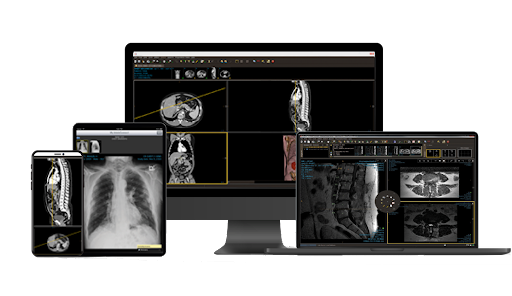
May 31, 2022 — Patient trust is not a barrier to artificial intelligence (AI) adoption by medical imaging professionals, according to a new study by Intelerad, a global leader in medical image management solutions.
This is just one finding from Intelerad’s wide-ranging study that queried over 1,000 healthcare consumers across the U.S. to uncover the impact of healthcare’s digital transformation on the healthcare consumer in a post-pandemic world. The results unveil new insights into patient attitudes toward AI. Key findings include:
-
Patient trust is not a barrier to AI adoption in medical imaging. 64% of respondents either trust or are neutral about a diagnosis solely from AI. When asked to rate their level of trust in a diagnosis by a radiologist assisted by an AI application, a whopping 79% of respondents reported they trust or are neutral about it. Respondents aged 55+ are much more likely to trust diagnoses assisted by AI as opposed to solely relying on it (59% compared to 22%). Not surprisingly, trust in AI correlates with age: the younger an individual, the more likely they are to trust it.
-
AI is highly trusted for making appointments and organizing a radiologist’s workload. When it comes to specific activities, 88% of respondents trust or are neutral about AI’s role in making appointments. Additionally, 86% trust or are neutral about AI organizing a radiologist's workload by flagging questionable abnormalities.
-
Education is key: Patients do not know when their radiology services are supported by AI. Only 19% of respondents believed they received care supported by AI, while 24% did not know, and 58% believed they had not. The younger an individual, the more likely they were to believe that AI has played a role in their care, with only 4% of 55+ believing so.
-
Healthcare consumers believe AI will play a major role in medical imaging in the future. The majority of respondents (60%) think that AI will perform over half of radiology services in five years, with that number increasing to 75% of respondents in the next 20 years. Furthermore, 8% of individuals think AI will account for 100% of services in the next five years, with that number increasing to 19% of respondents by 2042.
Sentiments among healthcare consumers diverge from current uptake of AI across the radiology field. Approximately 30% of radiologists are currently using AI as part of their practice and among those not currently deploying AI, 20% plan to purchase AI tools in the next one to five years, according to research from the ACR Data Institute.
“There has been significant research about how AI is transforming radiological services, yet little has been done to gather insight and preferences from the perspective of the healthcare consumer. Our latest study provides a new dimension to understanding how AI is impacting medical imaging by asking the patient their thoughts on the emerging technology in the field. This insight can help physicians with their decision-making around when and how to implement AI services,” said Morris Panner, President of Intelerad.
As with any new technology, physicians and practices may be wary to implement new AI tools into their daily workflows. Although AI is a learning experience for both parties, the daily improvements to efficiency and the benefits to patient care that new tooling can bring about will be instrumental to the future of the field. Radiologists will play a very key role in offering valuable feedback to algorithms to establish a transformative daily workflow.
A cloud platform to manage imaging data is the essential infrastructure in order to implement AI tools. The Intelerad suite consolidates multiple imaging systems with one flexible, customizable, and interoperable cloud platform that lets providers access imaging data securely anytime, anywhere. Layering new AI applications within Intelerad's platform produces a powerhouse of innovative workflows, windows for research and development, and long-term improvements to patient care.
At the SIIM 2022 Annual Meeting in Kissimmee, Florida on June 9, Panner will be a featured speaker for Session #1028 about key considerations when implementing AI applications or solutions, including strategies for harnessing latent data and preserving data privacy to foster trust between patients, clinicians, and vendors. For more information about Intelerad’s full suite of solutions or to book a meeting with the team at SIIM 2022, visit intelerad.com/siim22 or stop by Intelerad's Booth #411.
Survey Methodology
The survey was conducted online in July 2021 by Toluna Group on behalf of Intelerad’s Ambra Health among 1,094 U.S. respondents over the age of 18 who have received medical imaging services.


 February 13, 2026
February 13, 2026 









